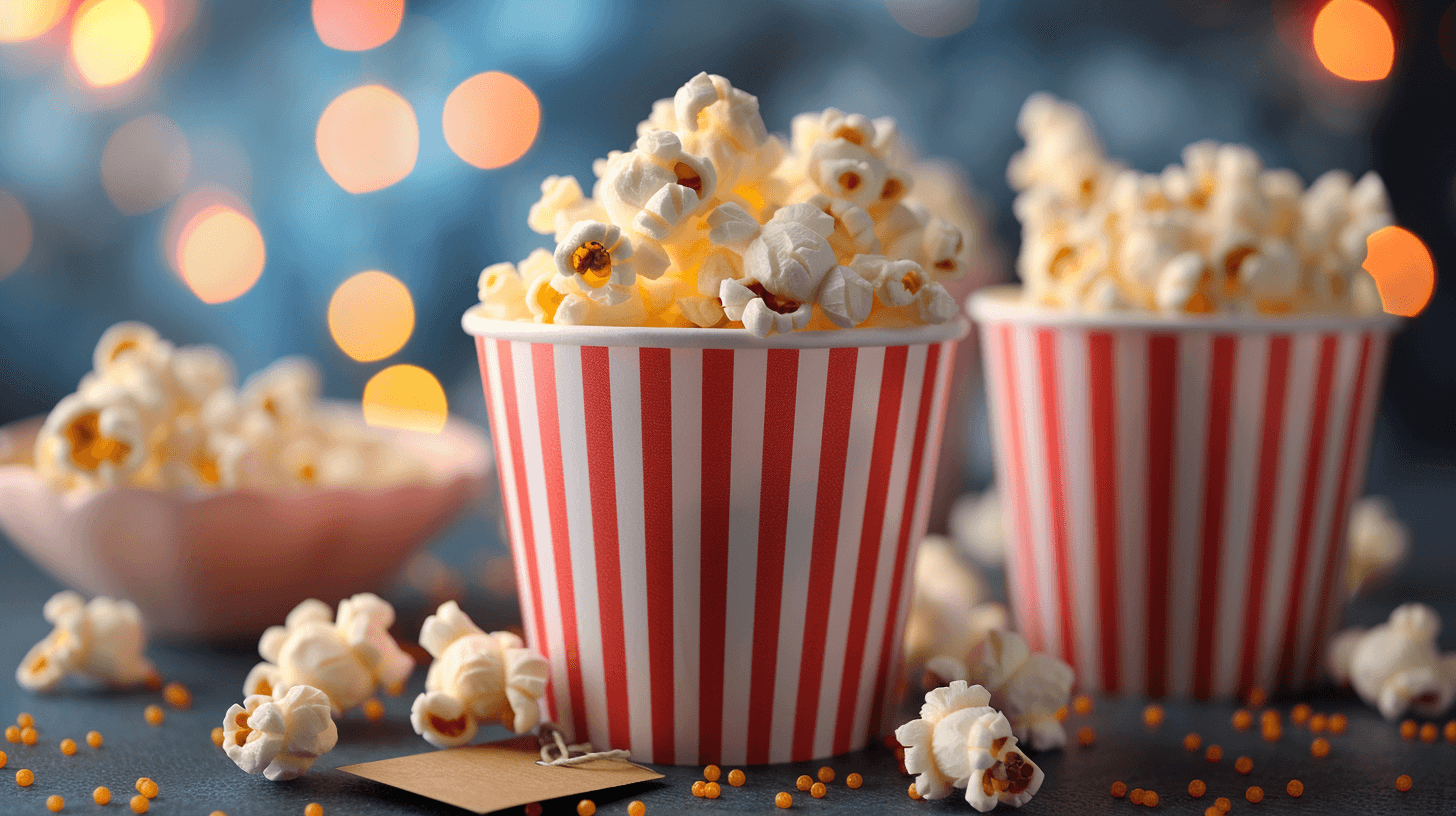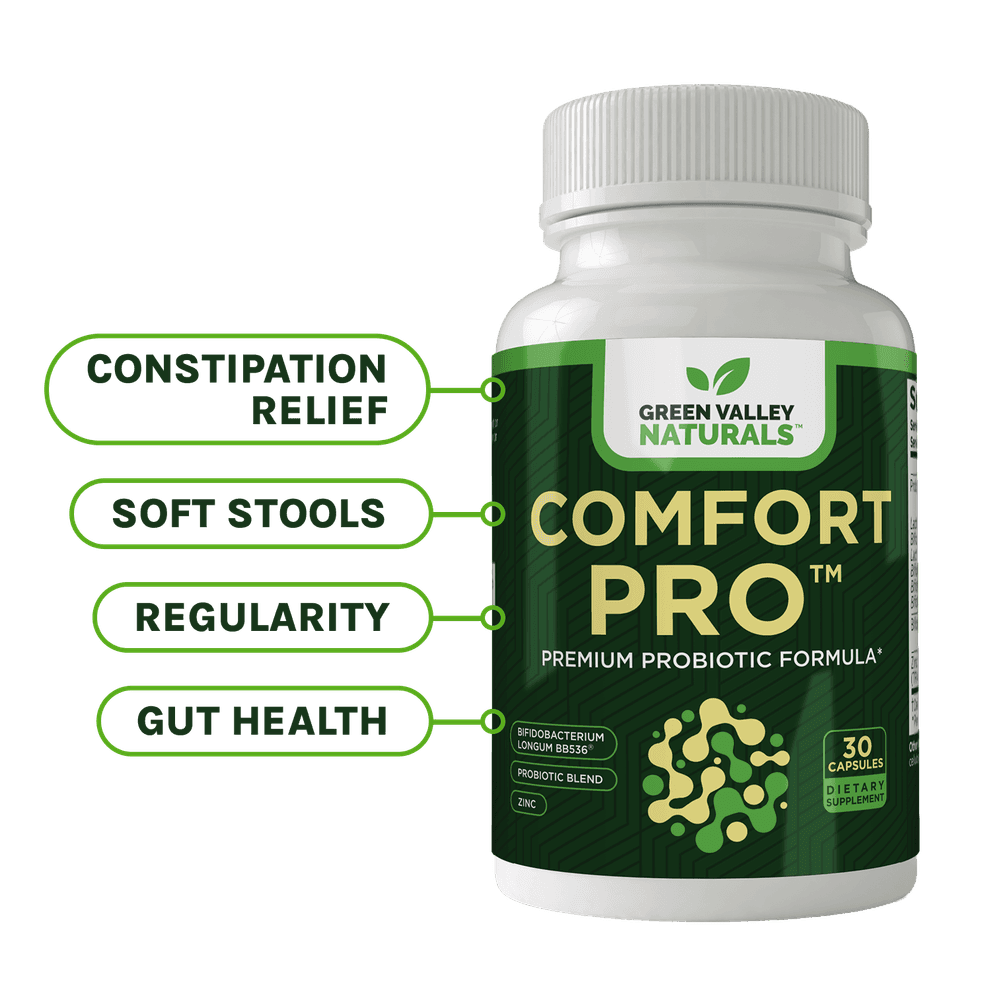
This is the time of year when communities come alive with exciting outdoor events, athletic games, and gatherings. Maybe you're one of the many people planning to wander the local farmer's market, sipping lemonade and admiring the fresh produce. Or a neighborhood picnic is on your calendar, where you can spread out a blanket, fire up the grill, and catch up with friends and neighbors.
The best part of all these exciting events is that they are a perfect chance to enjoy one of our all-time favorite snacks: popcorn.
This crunchy, classic snack can take on so many different flavor profiles. From the sweet indulgence of kettle corn to the savory satisfaction of oil-popped varieties topped with salt and other seasonings, popcorn is one of the most versatile—and delicious—foods on earth.
Even better? When prepared in healthy ways, this humble whole grain offers a guilt-free snack packed with fiber. But when popcorn is prepared incorrectly, it can be sugary junk food full of extra calories and fat.
That's why our team tackled the best—and worst—ways to make popcorn for your health. Plus, the answer to an age-old question: is kettle corn healthy?
Here's everything you need to know about one of America's favorite festival snacks.
Key Takeaways
- Popcorn can be a fiber-rich, healthy snack food when prepared in specific ways.
- Some varieties of popcorn contain excess sugar, salt, fat, preservatives, and unhealthy oils, which are not good for your waistline or your health.
- Kettle corn is a great treat, but it can contain excess sugar and fat, depending on how you cook it.
The American Love Affair With Popcorn

Popcorn was discovered in South America thousands of years ago. This unusual variety of the corn plant was a staple in some indigenous cultures' diets, as well as used in their religious ceremonies.
During the 1800's, plain popcorn became a popular breakfast food before the invention of modern breakfast cereals.
Even though it has since been replaced as a way to start the day, popcorn is still a staple in most American kitchens due to its delightful crunchy texture and delicious taste. [1]
I don't know about you, but some of my favorite childhood memories -- like going to movie theaters, watching the circus, and making Christmas tree garlands -- all involve a giant bowl of salty traditional popcorn. Or time spent in the kitchen watching my mom melting butter on the stove while standing over a giant pot waiting to here the first pop of a fresh batch.
Plus, there's good reason to celebrate with these popped kernels besides their incredible taste. You see, many forms of traditional popcorn are a good source of whole grains, fiber, vitamins, minerals, and antioxidants.
In fact, I think popcorn could be the next superfood!
The Health Benefits of Popcorn
Popcorn "pops" when exposed to heat. When put over a hot stovetop, the kernels pop. The unmistakable sound of popping a fresh batch of popcorn can make just about anyone's mouth water.
But the way it's prepared is just as important as the way it tastes if you care about your health. And I'm not just talking about the butter and salt that tops it off.
You see, most popcorn is oil popped, meaning it's cooked in oil.
When heated in a healthy oil -- like coconut oil -- this snack can have added nutritional value. Another healthy variety is air popped popcorn because it uses hot air instead of oil. It does not have any added nutrients from oil, but it is very low in calories and is still a good addition to a health diet.
However, there are a few types of popcorn to limit or avoid. We will dive into those later.
For now, let's talk about the nutritional value of regular popcorn.
Whole Grains, Healthy Heart

What makes fresh, unprocessed popcorn so healthy? For one thing it's packed with essential vitamins. Popcorn also contains minerals and other nutrients that help your body function well and fight illness. For example, popcorn is a source of whole grains so it's in the same category as wheat bread, rice, and corn. In fact, it may surprise you to know that you can consume a whopping 15 grams of fiber in one single serving of popcorn-- that's way more than most other foods. By the way, a serving of popped popcorn is roughly four to five cups, which is the amount you get from two tablespoons of unpopped kernels.
When you eat a diet high in fiber you have the best chance of preventing heart disease, digestive problems and illness like colon cancer. You can also fight inflammation.[2] As we've mentioned many times before, chronic inflammation, or "inflammaging," is a leading cause of premature aging and illness.
Vitamins, Minerals, and Antioxidants
In addition to its high fiber content, popcorn also contains several other essential vitamins and minerals. These include:
- Vitamin B1,
- Vitamin B2,
- Vitamin B6,
- Copper,
- Iron,
- Magesium,
- Manganese,
- Potassium,
- And Zinc. [3]
Even better? Research shows that popcorn also contains high levels of antioxidants called polyphenols. [4]
We've written about polyphenols before. They're found in vegetables and fruit and are among the healthiest antioxidants on the planet. Polyphenols are linked to reduced risk of cancer, diabetes, heart disease, high blood pressure and problems with blood flow. [5]
Snack Your Way to Weight Loss?

Air popped popcorn has been shown to help with weight loss. Since it's not popped in oil, its very low in calories and fat. And due to popcorn's high fiber content, folks who eat it feel fuller, which can contribute to less snacking and more weight loss. A serving of air-popped popcorn contains about 120 to 150 calories.
In fact, one study found that snackers who ate just 15 calories worth of air popped popcorn-- about one half cup-- felt just as full as those who ate 150 calories of potato chips, which is the equivalent of 1/8 a cup. [6]
So, if you want a snack that can deliver on taste, nutrition, and fullness popcorn is at the top of the list!
However, some types of popcorn don't offer the same health benefits... and can even do more harm to your health than good. The reason isn't the popcorn but the way it's prepared or processed.
Stay Away from These Popcorn Varieties
Like I said, the right type of popcorn can be a great part of a health diet. And the wrong types? They can make your health issues worse.
That's why it's so important to know the types of popcorn to enjoy... and the types to avoid-- or only eat infrequently, in small portions, such as kettle corn. More on that in a minute...
Popular Oil Can Cause Diabetes, Alzheimer's
Some commercially made popcorns -- like the ones you find in the chip aisle or at your local movie theater -- are popped in unhealthy processed oils that contain trans-fat or unhealthy types of saturated fat, such as soybean oil.
We recently reported on how soybean oil has been linked to memory loss and even dementia. Soybean oil is one you really want to stay away from if you can. Unfortunately, soybean oil is commonly used in processed, pre-packaged foods because it's cheap. But in our opinion, the health dangers aren't worth the risk.
Research from the University of California Riverside shows that soybean oil consumption can lead to obesity, diabetes, insulin resistance, fatty liver disease, and can also impact brain genetics linked to autism, Alzheimer's, anxiety, and depression in animals. [7]
Additionally, many bagged popcorn products contain added sugars, salt, artificial flavors, and preservatives that are unhealthy. So, if airpopped popcorn isn't your speed and you want to enjoy an oil-popped snack -- and still reap all of popcorn's health benefits -- homemade popcorn is the way to go.
What's more, using healthy varieties of oil like avocado, olive, or coconut oil can help boost the health of your brain and body, instead of doing them harm.
Plus you can add healthy seasonings like sea salt or a bit of maple syrup and cinnamon for a sweet treat. Whatever you choose, it's important to stay away from microwave popcorn.
The Dangers of Microwave Popcorn
Of all the types, microwave popcorn may be the worst for your health.
Most microwave popcorn products contain dangerous chemicals that can result in health problems.
For one thing, a chemical called perfluorooctanoic acid is used in the the lining of most microwavable bags. This International Agency for Research on Cancer (IARC) has listed this chemical as a "possible carcinogen" and linked it to an increased risk for cancers of the breast, bladder, kidney, thyroid, and prostate. [8]
Then there's the butter in microwave popcorn. Of course, the "butter" isn't really butter at all. It's an artificial butter flavored compound that often contains a chemical called diacetyl. Inhalation of diacetyl vapors, particularly in industrial settings, has been linked to a rare lung disease called bronchiolitis obliterans, commonly referred to as "popcorn lung" because it was first identified in workers at popcorn factories. [9]
But What About Kettle Corn?

It's no secret that kettle corn is one of the best-tasting renditions of popcorn around.
This sweet and salty snack is typically popped in a cast iron kettle by adding sugar and salt while the kernels are popping. And the results are just heavenly.
So what's the problem? The amount of sugar added.
You see, most kettle corn is made with A LOT of sugar to carmelize the popped corn kernels and create the crispy and crunchy texture of kettle corn. So, your best option for kettle corn is to make it at home -- where you can control the type of oil you use as well as the level of sugar and salt -- instead of buying it from a store or a vendor.
The Benefits of Homemade Kettle Corn
Homemade kettle corn can be made on the stovetop in a large pan or cast iron kettle. Add your healthy oil and as the kernels pop mix in a small amount of sugar and salt -- just enough to create that classic flavor profile but not enough to impact your blood sugar.
There are many recipes for making kettle corn healthier available on the internet.
Of course, this healthier kettle corn may not taste just like the kind you get at the fair, but it will satisfy your craving without ruining your healthy diet.
And having the occasional serving of classic kettle corn is just fine, too. Eating this delicious snack as a rare treat can ease your worry while letting your enjoy a seasonal favorite.
Making Popcorn The Healthiest Snack
Making popcorn the healthiest snack starts with an air popper, in our opinion.
This low-cost device can be found at many stores and will deliver fresh, hot popcorn whenever you want it.
And the best part, it requires no extra oil or time to cook or spent over the stovetop!
Air popped popcorn is a great base to add any flavor profile to. From butter to cheese to any sweet treat style ( I like to add cinnamon).
This healthy snack can also be made into a kettle corn inspired flavor by adding just a bit if sugar and salt to the finished product.
If you prefer oil popped popcorn, that is a good choice as well. Just be sure to use a healthy oil for additional nutritional value.
You can also make homemade kettle corn with this method. Add in the salt and bit of sugar (I like maple syrup) to the pan or cast iron kettle with the popping oil.
Summary
Popcorn is good source of whole grains, fiber, minerals, vitamins, and antioxidants. This food is a great addition to any healthy diet as long as it is air popped or oil popped in a healthy oil. Kettle corn is a sweet snack that is best left as an occasional treat or opt for homemade kettle corn.
Frequently Asked Questions
- What is the healthiest popcorn to eat?
Air popped plain popcorn is the healthiest variety of popcorn. Unlike processed versions, this type of popcorn has no added sugar, unhealthy oils and dangerous chemicals used for artificial flavor.
Microwave popcorn should be avoided because it can contain dangerous chemicals in its packaging that can get on popcorn kernels.
Kettle corn can be made healthy when prepared at home. This version of kettle corn allows you to control for the amount of added sugar and fat in the corn.
- Is popcorn healthy for weight loss?
Popcorn could be beneficial for anyone watching their weight. it's a great source of fiber and one study shows it can help you feel fuller than other snack foods.
- Is kettle corn high in fat?
Traditional kettle corn has a higher fat content than air popped homemade kettle corn due to the kernels being popped in fat and having added sugar and other ingredients like butter.
You can find a recipe for healthier kettle corn on the internet. These versions will help you beat your craving without sacrificing nutritional value.
All in all, any popcorn -- including kettle corn -- can be high in fat if the kernels are popped in unhealthy fats or additional toppings -- like butter, cheese, or other fatty seasonings -- are added during or after the pop.
- How can I make sweet popcorn without adding sugar?
Sweet popcorn -- like kettle corn and caramel corn -- are the favorite flavors of many snackers wether they are at the movies or at home.
One way to get sweet corn kernels without a lot of added sugar is to use a natural sweetener like monk fruit or stevia. I also like to add a sprinkle of cinnamon for a real dessert experience!
- Popcorn.org. History of Popcorn.
- Aune D, Keum N, Giovannucci E, Fadnes LT, Boffetta P, Greenwood DC, Tonstad S, Vatten LJ, Riboli E, Norat T. Whole grain consumption and risk of cardiovascular disease, cancer, and all cause and cause specific mortality: systematic review and dose-response meta-analysis of prospective studies. BMJ. 2016 Jun 14;353:i2716. doi: 10.1136/bmj.i2716.
- USDA. FoodData Central, popcorn.
- Coco MG Jr, Vinson JA. Analysis of Popcorn for Antioxidant Capacity and Total Phenolic Content. Antioxidants (Basel). 2019 Jan 14;8(1):22. doi: 10.3390/antiox8010022.
- Rana, A., Samtiya, M., Dhewa, T., Mishra, V., & Aluko, R. E. (2022). Health benefits of polyphenols: A concise review. Journal of Food Biochemistry, 46(10), e14264.
- Nguyen V, Cooper L, Lowndes J, Melanson K, Angelopoulos TJ, Rippe JM, Reimers K. Popcorn is more satiating than potato chips in normal-weight adults. Nutr J. 2012 Sep 14;11:71. doi: 10.1186/1475-2891-11-71.
- University of California - Riverside. "America's most widely consumed oil causes genetic changes in the brain." ScienceDaily. ScienceDaily, 17 January 2020.
- American Cancer Society. PFOA, PFOS, and Related PFAS Chemicals.
- The National Institution for Occupational Health and Safety. Flavoring-related Lung Disease.

